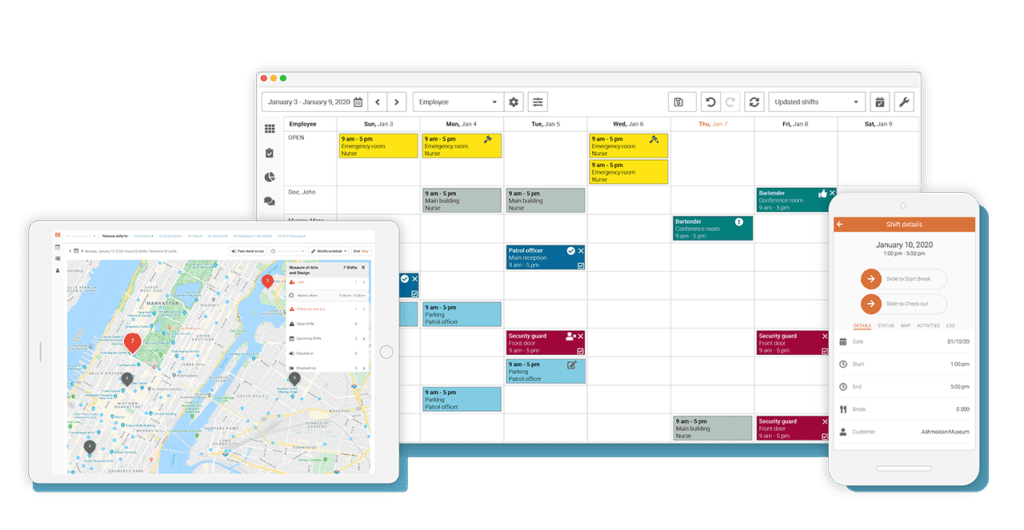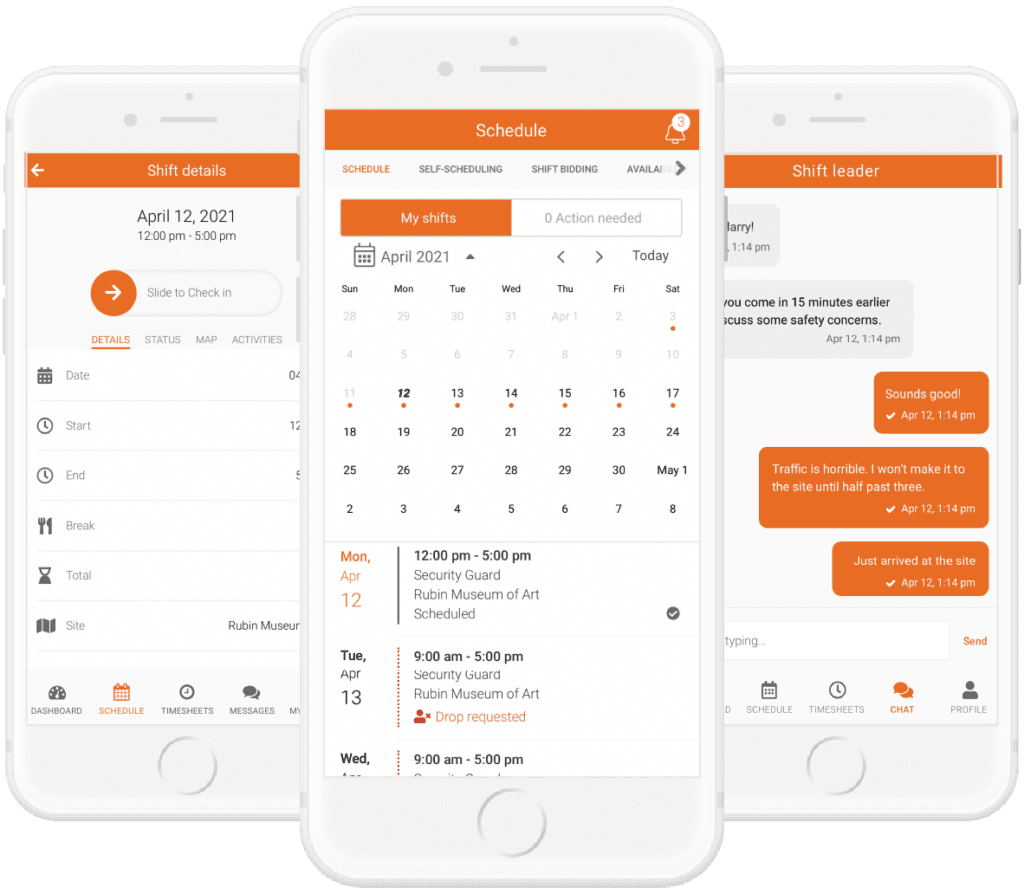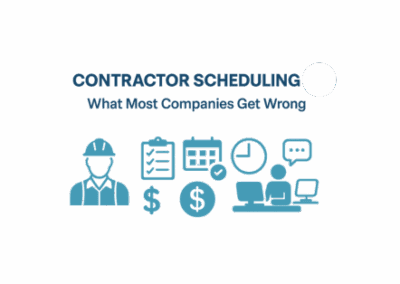Over the years, work schedules have become so fixated that Dolly Parton even wrote a song about it. ‘Working 9 to 5’ is evidence that these hours are so culturally ingrained as a tradition that we as workers should all abide by. Unfortunately, this way of scheduling constricts the flexibility employees have outside of the workplace. And so, companies should consider offering flexible schedules.
25% of employees quit their jobs because their bosses did not enable them to work flexible hours
Flexjobs
An article by Forbes has warned that employers might face a problem in 2022 in attracting and retaining staff if they do not provide work flexibility to employees. According to various research, work flexibility is a critical leadership technique for maintaining and recruiting committed employees. Employees are prioritizing their mental health more than ever to prevent stress and burnout. Flexible work schedules are at the top of the list for attaining a healthy work-life balance. According to a recent Flexjobs survey of 2,202 employees, 25% of employees quit their jobs because their bosses did not enable them to work flexible hours. Another 30% of employees hold jobs they despise and wish to leave.
What are Flexible Schedules?
Flexible scheduling is an alternative to the traditional working environment. While the degree of flexibility may differ, it allows employees to create a work-life routine that suits them. Flexible scheduling takes responsibility away from the employer while allowing them to maintain control.

Most employers are hesitant to introduce flexible scheduling due to a lack of understanding. They fear the idea of not having control and the effects this may have. But the reality is that the work landscape is changing to cope with the demand of today’s society. There’s a multitude of different benefits that come with introducing flexible scheduling. However, first, let’s break down the problems associated with problem inflexibility.
Problems with Schedule Inflexibility
Physical and Mental Burnout
Job burnout is a sort of work-related stress, that we characterize by physical or emotional tiredness. It is also associated with a sense of diminished accomplishment, and a loss of personal identity. “Burnout” is not a medical term. Some experts believe that job burnout also brings about other diseases, such as depression. Individual characteristics such as personality features and family life, according to researchers, determine who experiences job burnout. Job burnout can impair your physical and mental health for a variety of reasons. Physical and mental burnout can occur due to non-work-related stressors. However, the most common reason for burnout is due to lack of control within the workplace. When compared to having little control over a low-stress work, having low control over a demanding job was linked to a 15.4 percent higher risk of mortality.
The study also mentions that the effects of stress build up over time. It begins with psychological stress and progressing to physical issues such as high blood pressure and even mortality. Some jobs are linked with lower employee control and resultantly are at higher risk of feeling burned out. Nursing jobs, workers in construction, and security guards are some of the jobs where the schedule is relatively inflexible. Hence, they have the highest rate of employee turnover.
Work-Life Imbalance
The concept of work-life balance has lately gained traction. This may be because it is relevant and important to all employees, regardless of their marital status, family size, or the number of children. According to some experts, a conflict between work and personal obligations causes a loss of balance. Researchers discovered that emotional and instrumental support for employees during work has a favorable relationship with work-life balance satisfaction in their study on support for work-life balance. In fact, there are positive associations between work-life balance and workplace productivity. As a result, fulfilling life duties (family and parental tasks) leads to improved work performance. Finding a balance between personal and professional obligations improves overall life pleasure.

On the other hand, the negative effects of work-life imbalance are often underestimated by employers. Hence not much attention is given to employees’ morale unless it affects their productivity. Work-life imbalance affects the greatest certain employees that have other important responsibilities such as taking care of family, doing other household tasks, etc. These responsibilities along with working with a fixed work schedule can often create a burden for any employee. Now, let’s discuss the benefits and importance of flexible schedules.
The Benefits of Flexible Schedules for Employers
89% of companies have reported better retention rates because of their flexible work options.
CompareCamp
1) Improves employee retention
Introducing flexible scheduling can go a long way toward improving your employee retention. As an employee, autonomy over your schedule can be huge for morale and motivation. And for the manager who integrates a flexible scheduling policy, you’re creating a workplace culture. One that doesn’t just care for their employees in the workplace, but outside of it, too.
In a recent survey, 89% of companies have reported better retention rates because of their flexible work options. Sara Sutton, founder, and CEO of FlexJobs stated that now more than ever, employees are feeling empowered to seek jobs that are more compatible with their life. So, in the current market, companies cannot afford to ignore the value that a flexible schedule brings to an employee and the impact is has on workforce productivity. And here’s the reason why.

The average company cost per hire is around $4000. The effort and money required to recruit, hire and train a new staff member can overwhelming. It can also put significant pressure on your company. This can lead to exceeding your budget or taking money from other areas of the company, which can slow growth. By offering a flexible schedule, you’re likely to retain your top talent and save on significant costs along the way.
To prevent “the great resignation” and retain your employees, you must ensure that their schedule is flexible enough to prevent an unhealthy work-life balance.
2) Greater productivity
By incorporating the best advantages for you employees, you’re giving yourself a greater chance of being more productive.
Flexible scheduling ensures your retention levels are high and your employees have a healthy work-life balance. Because of this, you’ll be benefitting from greater productivity.
Flexible scheduling has proven to increase employee satisfaction and reduce stress in the workplace. Creating an environment that makes your employees feel more engaged can produce the positive side effects of a happier and healthier workforce. When employees don’t have to worry about meeting their obligations outside of the workplace, they’re more likely to focus and be more productive when at work. If you keep them happy, they’ll return the favor.
3) A More Diverse Talent Pool
Flexible working arrangements have a big impact on employment decisions. Recruiting is difficult due to the large number of organizations that provide diverse advantages. Top performers don’t even explore organizations that don’t meet their expectations. A typical 9-5 employment is one of the primary disadvantages that businesses focus on. Once you get over that preconceived assumption, you have access to a far larger pool of talent. This is especially true for millennial workers, who value flexibility above all else.
4) Increased Employee Morale and Engagement

One of the main reasons why so many individuals want flexible work schedules is to strike a better balance between their professional and personal life. It’s especially difficult for hourly workers, who are frequently students or parents with a lot on their plates outside of work. Offering schedule flexibility is something you should really consider if you want to effectively hire this type of worker. Employees that are able to attain work-life balance are happier and more fulfilled right away. Employee engagement and morale rise, resulting in more productive staff. It also refers to employees who are content with their current jobs and are not hunting for new ones.
According to a meta-study, attaining work-life balance signals to employees that they are being treated favorably by their superiors. This is frequently followed by reciprocation in the form of increased commitment and productivity.
5) Better Recruiting
84 percent of millennials want to improve their work-life balance, and 67 percent want a more flexible work schedule so they can spend more time with their family.
FlexJobs
It’s not difficult to see how having flexible schedule alternatives is an excellent recruitment technique for attracting this generation’s top workers. According to a FlexJobs survey, 84 percent of millennials want to improve their work-life balance, and 67 percent want a more flexible work schedule so they can spend more time with their family. Offering schedule flexibility provides recruiters more alternatives and a larger pool of talent from which to choose when hiring new employees.
Today’s work market is extremely competitive, which is why being able to provide incentives like flexible hours may be so important in attracting top talent. If managers express explicitly that they are open to and comfortable with recruiting people who can only work part-time or who require flexible shifts to fulfill the demands of their personal responsibilities, managers will significantly increase the number of talent who may be interested in working for the firm.
Benefits of Flexible Schedules for your Employees
Prevents burnout
According to the U.S Bureau of Labor Statistics, as many as 42.1 million Americans quit their jobs in 2019. Pandemic-era epiphanies, exhaustion, and eventually burnout drove this trend. Many perceived that post-pandemic burnout could be cured by additional self-care, yoga, and more sleep. But as time went on, the number of resignation letters being received by the HR departments have highlighted that it was a much greater problem than first realized. And so, companies have strategized ways to eliminate this phenomenon. And one of those ways is by offering a more flexible scheduling process.

Managers should be encouraging employees to take advantage of flexible scheduling if it isn’t to the detriment of the company achieving its goals. Some employees may require being on-call for their kids, attending doctor appointments or simply making time for the more enjoyable social activities in life. By allocating more flexibility in your schedules, you’re giving them the opportunity to have a happier, more fulfilled life. Investing their energy in areas that support their own wellbeing means they’ll be four times less likely to feel burnout while at work.
Compressed work weeks
Many employees take advantage of flexible scheduling by compressing their workweeks. By working longer hours per day, employees are handed the opportunity to work fewer days a week. This can conclude in a range of benefits listed below:
- More free time – Employees can use this to run errands or further their career with those new development opportunities that just happen to fall inside of a traditional schedule.
- Fewer absences – More free time means employees won’t require as much time to handle personal matters outside of work.
- Less commuting – The less days and employee spend in work, the less time and money they’ll spend commuting.
- Fewer interruptions – Longer working days can mean a more intense and efficient focus on on the task at hand. This can lead to higher productivity.
- Improved service hours – If a company caters for workplace flexibility, then their customer service hours are extended beyond the typical 5pm. This makes them more accessible and can be very useful for customers who are busy throughout the day.
Better Mental Health
The value of 9-5 work hours is debatable because it appears to be detrimental to people’s general well-being. The current mental health of employees is the most important factor that suffers. Employees appear to have experienced high levels of stress in such a setting.
According to the Kenexa High-Performance Institute’s survey, work stress is “unreasonably high” for 68 percent of workers with rigid schedules. In comparison, only 20% of respondents with flexible work schedules shared this sentiment. Furthermore, FlexJobs discovered that work flexibility (things like remote work, flexible hours, and decreased schedules) can have such a beneficial impact on people’s quality of life that 97 percent said it would have a “big” or “positive” impact.
How to Create Flexible Schedules
The importance of employee scheduling software
Employee scheduling software is the platform companies must utilize to ensure fair and flexible scheduling. As a long-term solution to cater to change, a best-of-breed employee scheduling software will allow managers to create a flexible schedule that gives them all the control they need and empowers employees to make scheduling decisions that suit their lifestyle.

Using self-scheduling and shift bidding tools, managers can give their employees the autonomy to choose their own shifts. It takes the burden off them and gives employees much more flexibility for everyone involved. It also ensures that qualified staff fills the shifts that fit the business needs. If any employee needs a schedule change, then they can message a manager directly using their employee scheduling app or use a drop shift option if permitted. If they don’t choose to create a shift swapping policy, then managers can their take advantage of their autofill or find replacement tools to find the best employee to fill the void.
How your Organization can Benefit from Flexible Schedules
With flexible schedules, your organization can benefit from a more active workforce, with less tardiness and absenteeism. Our previous blogs have talked about the effects of absenteeism on the workplace, and why it’s vital for companies to ensure employees remain productive.
Moreover, Flexible schedules not only save money for both employees and employers but also benefit the environment and assist the United Nations’ sustainable development goals.
- Employees who work from home may not have to commute to work every day. This saves them money on transportation costs, work attire, and daily lunches out.
- Employers can reduce their overhead expenses. They can rent a smaller office and save money on utilities.
These modifications help reduce the carbon impact of both the employees and the company. Because employees don’t commute as often (if at all), they emit fewer hazardous pollutants into the environment, regardless of how they arrive at work. Any organization that attempts to keep the larger goal in mind is certain to remain ahead of their competitors in potential client’s perspective.
So, if your company has identified an opportunity to implement a flexible scheduling strategy, you can be sure it’s heading in a healthy direction. If you want to learn more about how Celayix’s employee scheduling software can support a flexible schedule, get in touch with as Solutions Advisor today!




